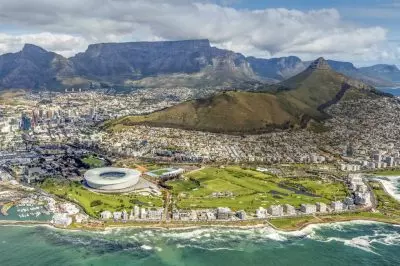 For the time being, South Africa is considered the most prosperous one of all African nations, despite its recent history is marked by periods of political and economic turbulence. The country, however, seems ready to use its people and national resources on its way to building a modern and successful nation.
For the time being, South Africa is considered the most prosperous one of all African nations, despite its recent history is marked by periods of political and economic turbulence. The country, however, seems ready to use its people and national resources on its way to building a modern and successful nation.
Despite being on its way to “modernization”, South Africa has taken a stiffer approach to gambling. Currently, online gambling is strictly prohibited in the country, with local citizens being subjected to extremely harsh penalties in case of being accused of visiting gambling websites. Playing in an online casino from South Africa could result in a 10-year imprisonment sentence or a serious monetary fine.
And still, are such restrictions necessary? Until recently, all forms of gambling were fully banned in South Africa. The initial National Gambling Act of 1994 lifted the restrictions to give the green light to a comprehensive gambling licensing system. Online gambling, however, remains suspended under the provisions of the National Gambling Act of 2004.
However, a number of considerations related to the legalization of online gambling have emerged in the country. Since the beginning of President Ramaphosa’s term, there have been some signs of recovery in many aspects of the South African economy, so iGaming could be on the way, too.
South Africa is home to 75% of the largest companies in Africa, and a massive portion of its money is generated through mining of diamonds and gold, but this has not been enough to exclude any wider economic issues. Moderate growth of its gross domestic product (GDP) was reported in 2018 (0.7%), while unemployment remaining a major concern. On the other hand, the country’s national debt is more than 50% of GDP, with the highest rate since 2009 reached in 2017. The public debt is also projected to rise over the next three-year period to about 66% of the GDP.
All of the above-said, along with the concerning inflation prospects could mean that the nation would soon need a fresh revenue source to keep the overall improving economic picture for the country. And, after all, why not making online gambling part of the game?

Online Gambling Remains Banned under the National Gambling Act of 2004
As mentioned above, online gambling is outlawed by the National Gambling Act of 2004. Then, in 2008, an amendment aimed at legalizing iGaming had been proposed to be brought to the Act, but despite being passed, it was never brought to action by the Parliament. Two years later, a further piece of legislation which provided overseas operators to offer their services to local players was passed. This measure, however, made it effectively impossible for players with an IP address in the country to gamble online.
Since then, the position of South Africa’s Parliament was reiterated, until finally, an amendment to the National Gambling Act of 2004 was made to cement the online gambling ban.
At the same time, however, local authorities remain more restrictive to online casinos. Things are quite different when it comes to online betting, as the South African authorities seem to be welcoming this type of gambling. Online betting is currently available in all nine provinces of the country and the activity is being regulated by the National Gambling Board, which is set to be soon renamed to the National Gambling Regulator.
As a matter of fact, gambling has turned into a huge economy sector in South Africa. According to reports, a huge number of local residents play the lottery, with approximately 96% of South Africans having purchased a lottery ticket in the past. More than 25% of the population is also engaged in slot games. Many other people find traditional casinos and horse racing, both of which have recently been made legal by the local Government, fascinating.
Casino gambling was officially legalized in the country in the 1990s. At that time, the casino operation licenses were evenly distributed among the South African provinces. Currently, there are more than 40 traditional land-based casinos which offer their licensed services in the country. The number of land-based gambling facility rises to 60 when horse racing tracks are also taken into account.
The last twenty years, however, have seen online gambling rise in popularity on a global scale, disrupting the dominance of brick-and-mortar casinos. That is one of the main reasons why many have called for the South African authorities to review its stance on the online gambling issues and consider possible legalization of online casinos in the country.

Online Casino Gambling Legalization Aspects
When it comes to the addition of online gambling to the legal gambling sector of South Africa, there were several pieces of legislation rolled out in the last decade which, unfortunately, do not give much space for optimism that local authorities would do that in the near future.
As mentioned above, in 2008, the National Gambling Amendment Act was rolled out aiming to legalize online gambling in the country. However, the possible addition of this form of gambling has provoked much controversy, so the amendment was fully passed about a decade later, in August 2018. Unfortunately, it had to be considerably narrowed by keeping the ban on online gambling and dog racing in order for the Parliament to give it the green light.
For the time being, sports betting and horse racing are the only gambling activities which are available online for South African residents. Any law-breaking is followed by massive monetary fines. Of course, the strict measures to prevent online casino gambling from happening does not necessarily guarantee that everyone in the country would be ready to observe the restriction.
According to estimates, around 5% of the national gambling spend is generated on illegal online gambling, with the figure representing around ZAR1.5 billion on an annual basis.